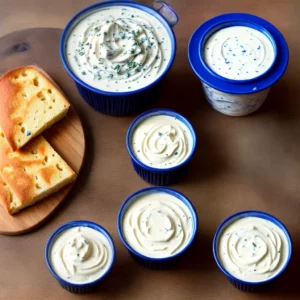Freezing lemons, oranges, and limes is a great way to preserve fruit and extend its shelf life. It helps save money, reduces food waste, and allows you to enjoy the freshness of citrus all year round. There are several methods to freeze oranges, including freezing them whole, as slices, or as segments. Each method has its own pros and cons, so you can choose the one that works best for you. Freezing citrus fruits can be done for up to 6 months, and the frozen oranges can be used for various purposes like making healthy lemonade, adding flavor to recipes, or using them in smoothies.
Why Freeze Oranges?
Freezing oranges and other citrus fruits not only allows you to enjoy their freshness all year round, but it also helps save money and prevent food waste. By buying citrus fruits in bulk and freezing them, you can take advantage of lower prices and avoid going back to the store every time you need oranges. Freezing citrus fruits also preserves their flavor and juiciness, making them perfect for use in recipes where the taste of fresh citrus is essential. Additionally, freezing citrus fruits allows you to have orange slices, segments, or zest readily available for use in salads, desserts, drinks, and more. The freezing process breaks down some of the proteins in the fruit, making them juicier when thawed.
Preserving citrus by freezing oranges has numerous benefits. Firstly, it allows you to enjoy the taste of fresh oranges even when they are not in season. This means you can have the citrusy goodness in your dishes and drinks regardless of the time of year. Secondly, freezing oranges helps to reduce food waste by preventing the fruit from spoiling. By freezing citrus fruits, you can extend their shelf life and avoid throwing away overripe or unused oranges. Lastly, freezing citrus fruits like oranges is a form of food preservation that enables you to save money. By buying oranges in bulk when they are in season and freezing them, you can take advantage of lower prices and have a supply of oranges on hand whenever you need them.
Freezing oranges also provides convenience and versatility in the kitchen. Whether you want to make a refreshing citrus-flavored smoothie, add a burst of flavor to your recipes, or garnish your dishes with orange zest or segments, having frozen oranges readily available makes it easier to incorporate citrus into your culinary creations. So why freeze oranges? The answer is simple – it’s a cost-effective, waste-reducing, and flavor-preserving method that allows you to enjoy the taste of fresh oranges all year round.
Methods for Freezing Oranges – How to Freeze Oranges
When it comes to freezing oranges, there are different methods you can choose from depending on how you plan to use the fruit later on. Each method has its own advantages and considerations, so it’s important to understand the options available.
Freezing Whole Oranges
One of the easiest and most straightforward methods is freezing whole oranges. Simply place the whole citrus fruit in a freezer-safe container, remove as much air as possible, and freeze for up to 6 months. This method is particularly beneficial if you intend to use the zest and juice of the oranges. Freezing whole oranges allows you to have the entire fruit readily available for various recipes and culinary purposes.
Freezing Orange Slices and Segments
If you prefer to have orange slices or segments, you can opt for freezing them separately. For orange slices, cut the oranges into slices and freeze them on a baking sheet lined with parchment paper or a Silpat mat. Once frozen, transfer the slices to a freezer-safe container. For orange segments, cut the oranges into segments, place them on a baking sheet in a single layer, flash freeze for an hour, and then transfer to a freezer-safe container. Freezing orange slices and segments allows for easy portioning and more versatility in various dishes, such as salads, desserts, and drinks.
Freezing Orange Halves or Quarters
If you prefer larger portions, you can also freeze orange halves or quarters. Simply cut the oranges into the desired size and follow the same freezing process as with slices and segments. This method is ideal if you have specific recipes or uses in mind that require a particular size of orange portion.
Tips for Freezing Oranges
When it comes to freezing oranges, there are a few tips that can help ensure optimal results and longer shelf life. Here are some valuable freezing tips and citrus freezing techniques:
- Freeze oranges for later use: Freezing oranges allows you to enjoy the taste of citrus all year round. Whether you plan to use them in smoothies, recipes, or as garnishes, freezing oranges preserves their flavor and juiciness for convenient future use.
- Freeze citrus for later use: In addition to oranges, you can also freeze other citrus fruits like lemons, limes, and grapefruits. Freezing citrus fruits expands your options for adding refreshing citrus flavors to your meals and beverages.
- Ensure longer shelf life: When freezing oranges, it’s important to store them properly to maintain their quality and extend their shelf life. Use freezer-safe containers or bags and label them with the contents and date to easily identify the frozen oranges later on.
- Freeze oranges at home: Freezing oranges is a simple process that can be done at home with basic equipment. It allows you to take advantage of bulk purchases or seasonal harvests and enjoy the benefits of fresh citrus throughout the year.
Proper Labeling and Storage
To ensure the best results when freezing oranges, proper labeling and storage are key. Labeling the containers or bags with the contents and date of freezing helps you easily identify the frozen oranges and determine their freshness. When storing frozen citrus, consider the purpose for which you plan to use them. For example, if you are freezing oranges for garnish in drinks or salads, store them in small, separate containers for easy access. If you are freezing oranges for use in cocktails or baking, store them in larger containers or bags to accommodate the desired quantity for your recipes.
Summary
Freezing oranges is a convenient way to preserve the flavor and juiciness of citrus fruits for future use. By following these freezing tips and citrus freezing techniques, you can enjoy the taste of fresh oranges all year round. Proper labeling and storage ensure longer shelf life and easy identification of the frozen oranges. Whether you freeze oranges for smoothies, recipes, or garnishes, freezing oranges at home allows you to have a supply of citrus on hand whenever you need it.
Freezing Oranges for Different Uses
When it comes to freezing oranges, there are various ways to use the frozen fruit for different purposes. Whether you’re looking to enhance your smoothies, preserve oranges for later use, or add a citrusy touch to your recipes, freezing oranges can provide a convenient solution. Here are some ideas on how to use frozen oranges:
1. Freezing Oranges for Smoothies
If you enjoy starting your day with a refreshing smoothie, freezing oranges is a great way to add a burst of citrus flavor. Simply freeze orange segments or slices and blend them into your favorite smoothie recipes. The frozen oranges will not only contribute tanginess and natural sweetness to your smoothies but also provide a cool and refreshing texture.
2. Freeze-Drying Oranges
Another method of preserving oranges is freeze-drying. This process involves removing the moisture from the fruit, resulting in a lightweight, shelf-stable product. Freeze-dried oranges can be rehydrated with water when needed, making them a convenient and long-lasting option for snacking or adding to recipes like granola, trail mix, or baked goods.
3. Freezing Oranges for Recipes
If you enjoy cooking or baking with citrus flavors, freezing oranges in the desired form, such as whole, slices, or segments, can be a time-saving strategy. When a recipe calls for oranges, simply thaw the frozen fruit and incorporate it directly into your dishes. Whether it’s adding zest to a marinade, juice to a sauce, or orange segments to a salad, frozen oranges can provide a burst of citrus flavor to elevate your culinary creations.
4. Freezing Oranges in Syrup
For a sweet and versatile option, try freezing oranges in syrup. This method involves combining orange segments with a simple syrup made from sugar and water. The syrup acts as a protective coating, preserving the oranges’ moisture and flavor. Frozen oranges in syrup can be used in desserts, such as pies, tarts, or ice cream, or as a delicious topping for waffles, pancakes, or yogurt.
| Use | Method |
|---|---|
| Smoothies | Freeze orange segments or slices |
| Preservation | Freeze-drying |
| Recipes | Freeze oranges in desired form (whole, slices, segments) |
| Deserts and Toppings | Freeze oranges in syrup |
Citrus Storage Techniques
When it comes to storing frozen oranges, there are a few techniques you can use to ensure their long-term freshness. Proper storage is essential for maintaining the quality and flavor of the citrus fruit. Here are some tips to help you store your frozen oranges effectively:
- Store them in airtight containers or freezer bags to prevent freezer burn.
- Label the containers or bags with the contents and date of freezing for easy identification.
- Place the containers in a visible location in your freezer to avoid forgetting about them.
- If you plan to use the oranges for specific purposes, store them in separate containers or bags for convenient access.
- Consider using small containers for freezing oranges for desserts, baking, or cocktails, while larger containers can be used for freezing oranges for marmalade, fruit salads, or jams.
By following these citrus storage techniques, you can ensure that your frozen oranges stay fresh and flavorful for an extended period, allowing you to enjoy their tangy goodness in a variety of culinary creations.

| Storage Technique | Usage |
|---|---|
| Airtight Containers or Freezer Bags | Prevents freezer burn and maintains freshness |
| Labeling | Easy identification of contents and freezing date |
| Visible Location | Avoids forgetting about the frozen oranges |
| Separate Containers for Specific Purposes | Convenient access to oranges for desserts, baking, or cocktails |
| Small or Large Containers | Customized storage based on intended usage |
Properly storing frozen oranges allows you to preserve their flavor and texture, making them perfect for desserts, baking, cocktails, marmalade, fruit salads, jams, and more. Whether you’re craving a citrusy treat or adding a tangy twist to your favorite recipes, properly stored frozen oranges can be a versatile ingredient that adds a burst of flavor to your culinary creations.
Citrus Preservation Methods
When it comes to preserving citrus fruits like oranges, there are various methods you can try beyond freezing. These methods offer different ways to enjoy the taste of citrus in a preserved form. One popular option is using frozen oranges to make sorbet. Freezing oranges for this purpose helps preserve their flavor and juiciness, allowing you to enjoy a refreshing and tangy treat whenever you desire. To make sorbet, simply blend the frozen oranges with a sweetener of your choice, such as agave syrup or honey, and freeze the mixture until it reaches a smooth, creamy consistency.
Another preservation method is freezing oranges for drinks. Whether you want to enhance your cocktails or create flavorful infused water, frozen orange slices or segments can be a great addition. These frozen citrus pieces not only add a burst of citrus flavor but also act as a natural ice cube, keeping your drinks chilled without diluting their taste. It’s a simple way to elevate your beverage experience.
Freezing oranges for garnish is another creative preservation technique. The vibrant color and citrusy aroma of frozen orange slices make them an eye-catching and flavorful addition to your dishes. Whether you’re garnishing a salad, dessert, or savory dish, the frozen orange slices can add a touch of freshness and visual appeal. Simply place the frozen slices on top of your plated creation, and watch how it transforms the overall presentation.
Table: Comparing Citrus Preservation Methods
| Preservation Method | Benefits |
|---|---|
| Freezing Oranges for Sorbet | – Preserves flavor and juiciness – Refreshing and tangy dessert option – Easy to make with a blender |
| Freezing Oranges for Drinks | – Adds citrus flavor to cocktails – Acts as a natural ice cube in drinks – Enhances the visual appeal of beverages |
| Freezing Oranges for Garnish | – Eye-catching addition to dishes – Adds freshness and aroma – Elevates the presentation of meals |
These are just a few examples of how you can preserve and use frozen oranges beyond traditional freezing methods. Experiment with different preservation techniques that suit your taste and culinary preferences. Whether you’re making sorbet, enhancing your drinks, or garnishing your dishes, frozen oranges offer a versatile and convenient way to enjoy the vibrant flavor of citrus throughout the year.
Benefits of Freezing Oranges
Freezing oranges offers numerous benefits, including prolonged freshness, extended shelf life, and effective food preservation. By freezing citrus fruits, you can enjoy the taste of fresh oranges all year round, even when they are out of season. The freezing process helps retain the natural flavors and juiciness of the fruit, ensuring a delightful citrus experience.
One of the key advantages of freezing oranges is their prolonged freshness. When properly frozen and stored, oranges can maintain their flavor and texture for up to six months. This means you can always have a stash of delicious oranges on hand, ready to be used in various recipes or enjoyed as a refreshing snack.
Another significant benefit of freezing oranges is the extended shelf life it provides. By preventing spoilage and reducing food waste, freezing citrus fruits allows you to make the most of your fruit purchases. You can buy oranges in bulk while they are in season or on sale, and freeze them for later use. This not only saves you money but also ensures you always have oranges available when you need them.
| Benefits of Freezing Oranges |
|---|
| Prolonged freshness |
| Extended shelf life |
| Efficient food preservation |
Additionally, freezing oranges is an effective form of food preservation. The process helps lock in the natural goodness of the fruit, including its vitamins and antioxidants. By freezing oranges, you can enjoy the nutritional benefits of citrus fruits long after they would typically spoil.
In conclusion, freezing oranges is a simple and convenient way to prolong their freshness, extend their shelf life, and preserve their valuable nutrients. Whether you freeze oranges for use in recipes, smoothies, or as a refreshing snack, the freezing process ensures that you can always enjoy the taste of fresh citrus.

Proper Labeling and Storage
Proper labeling and storage are key to maintaining the quality and convenience of frozen oranges. When freezing oranges for garnish in drinks or salads, it’s important to store them in small, separate containers. This makes it easier to access and use the desired quantity without thawing the entire batch. Additionally, labeling the containers or bags with the contents and date of freezing ensures easy identification and helps determine the freshness of the frozen oranges.
For freezing oranges intended for use in cocktails or baking, it’s best to store them in larger containers or bags. This allows you to accommodate the desired quantity for your recipes without creating unnecessary waste. Remember to remove as much air as possible from the containers or bags to minimize the risk of freezer burn and preserve the flavor and juiciness of the oranges.
When storing frozen oranges, consider the purpose for which you plan to use them. By organizing and labeling them accordingly, you can easily access and enjoy the convenience of having frozen oranges on hand for various culinary creations. Whether you’re adding a bright pop of citrus to a refreshing drink or incorporating the tanginess of oranges into a vibrant salad, proper labeling and storage ensure that your frozen oranges remain accessible and in prime condition.
Thawing Frozen Oranges
When it comes to using frozen oranges, proper thawing techniques are essential to ensure the best results. There are several methods you can use to thaw frozen oranges, depending on your needs and time constraints.
One convenient method is to thaw the oranges in the microwave. Simply transfer the frozen oranges to a microwave-safe dish and use the defrost setting. Be sure to stir the oranges occasionally to ensure even thawing. This method is quick and efficient, allowing you to have thawed oranges ready to use in a matter of minutes.
If you prefer a slightly faster method that requires a bit more attention, you can thaw the frozen oranges in cold water. Place the frozen orange segments in a sealed bag and submerge it in cold water until the fruit softens. This method is particularly useful when you need to thaw oranges quickly for immediate use.
The third option is to thaw the frozen oranges in the refrigerator. This method is the slowest but results in a thorough and gentle thawing process. Simply transfer the frozen orange chunks to a lidded container and place it in the refrigerator for 10-12 hours, or until completely softened. Thawing the oranges in the refrigerator helps retain their flavor and texture while ensuring they are ready to use when you need them.
Once the frozen oranges are thawed, they can be used in a variety of ways. From adding them to smoothies and recipes to using them as a garnish or topping, thawed oranges bring a burst of citrus flavor and freshness to your culinary creations.
Using Frozen Oranges in Recipes
When it comes to cooking and baking with frozen oranges, the possibilities are endless. The bright, tangy flavor of citrus adds a refreshing twist to a wide range of dishes. Whether you’re making salads, desserts, cocktails, or savory recipes, frozen oranges can be a versatile ingredient that brings a burst of citrusy goodness to your creations.
Thawing the frozen oranges is the first step to using them in recipes. When the oranges are partially thawed, they can be easily sliced, segmented, or juiced, depending on the requirements of the dish. The soft texture and vibrant flavor of thawed oranges make them a perfect addition to fruit salads, where they can add a pop of color and tanginess. For baking, incorporate thawed orange slices or zest into your muffins, cakes, or bread for a citrusy twist.
Beyond traditional recipes, you can also get creative with frozen oranges. Use them as a base for refreshing sorbets or frozen treats by blending the thawed oranges with a sweetener of your choice. Frozen orange juice can be a refreshing addition to cocktails, adding a zingy citrus note. And don’t forget about frozen orange segments or slices, which can be used as a garnish for drinks and desserts, bringing a burst of citrus flavor and an eye-catching touch to your creations.
| Recipe Ideas | Description |
|---|---|
| Citrus Salad | A refreshing and colorful salad featuring a mix of thawed orange segments, grapefruit, and other citrus fruits. |
| Orange Upside-Down Cake | A twist on the classic pineapple upside-down cake, using thawed orange slices as the base. |
| Orange Margarita | A refreshing cocktail made with thawed orange juice, tequila, lime juice, and a touch of sweetness. |
| Orange-infused Olive Oil | Blend thawed orange zest with olive oil for a flavorful drizzle that adds a citrusy note to salads or roasted vegetables. |
As you experiment with using frozen oranges in your recipes, don’t be afraid to get creative and try new flavor combinations. Frozen oranges offer a convenient and versatile way to enjoy the taste of citrus year-round, and they can elevate your dishes with their bright, tangy flavor. So go ahead, thaw those frozen oranges and start exploring a world of delicious possibilities in your kitchen!
How to Store Frozen Oranges
Proper storage is essential to maintain the quality and freshness of frozen oranges. Follow these tips to ensure your frozen citrus stays delicious for an extended period.
Storing Frozen Oranges
When freezing oranges, transfer them to freezer-safe containers or bags to prevent freezer burn. Label the containers with the contents and date of freezing for easy identification. Remove as much air as possible from the containers to minimize the risk of freezer burn. Store the frozen oranges in a visible location in the freezer, such as on the door shelf, to ensure they are easily accessible and not forgotten.
Preserving Frozen Oranges
For optimal quality, it is recommended to use the frozen oranges within 6 months. However, when properly sealed, they can be stored for longer periods. To preserve the flavor and juiciness of the oranges, ensure they are properly sealed and protected from exposure to air.
Extended Shelf Life of Frozen Oranges
Proper storage techniques can help extend the shelf life of frozen oranges. When stored in airtight containers or bags, and kept at a consistent temperature of 0°F (-18°C) or below, frozen oranges can maintain their quality for an extended period. Regularly check the freezer temperature to ensure it remains at the optimal level for frozen food storage.
| Storage Tips for Frozen Oranges |
|---|
| Avoid overcrowding the freezer to ensure proper airflow around the frozen oranges. |
| Thaw frozen oranges in the refrigerator for gradual and even thawing. |
| Do not refreeze previously thawed oranges, as this can affect their texture and quality. |
| Use frozen oranges in recipes, smoothies, or as garnishes to add a burst of citrus flavor to your dishes. |
With the proper storage techniques, you can enjoy the taste of fresh oranges all year round. Whether you use them in recipes, smoothies, or as garnishes, properly stored frozen oranges will retain their flavor and juiciness, providing a convenient and versatile ingredient for your culinary creations.
Tips for Using Frozen Oranges
When it comes to using frozen oranges in your culinary creations, there are a few tips and best practices to keep in mind for the best results. Thawing the oranges properly before use is essential to ensure they blend or cook evenly. If the oranges are slightly frozen or partially thawed, they can be easily sliced, segmented, or juiced as needed, adding their bright, tangy flavor to your dishes.
Experiment with different recipes and cooking techniques to make the most of your frozen oranges. Consider using them in dishes where their natural juiciness and tanginess can shine, such as citrus-based desserts, marinades, dressings, or beverages. The frozen oranges can also be used as a garnish or topping for added texture and flavor. Get creative and let the frozen oranges elevate the taste of your culinary creations.
Here are some tips for using frozen oranges:
- Thaw the oranges properly before using them to ensure even blending or cooking.
- Experiment with different recipes and cooking techniques to make the most of your frozen oranges.
- Consider using the frozen oranges in dishes where their natural juiciness and tanginess can shine.
- Use frozen oranges as a garnish or topping to add texture and flavor to your dishes.
By following these tips and incorporating frozen oranges into your recipes, you can take advantage of the convenience and flavor that frozen citrus fruits provide. Enjoy the bright and refreshing taste of citrus all year round with the help of frozen oranges!

Conclusion
In conclusion, freezing oranges is a simple and practical method to preserve the freshness of citrus fruit throughout the year. By utilizing the proper freezing techniques and storage methods, we can extend the shelf life of oranges and reduce food waste. Freezing oranges offers numerous benefits, including prolonged freshness, extended shelf life, and convenience.
When we freeze oranges, we retain their flavor and juiciness, allowing us to enjoy the taste of fresh citrus even when it’s out of season. Whether we freeze oranges for making smoothies, adding flavor to recipes, or using them as garnishes, the frozen fruit maintains its quality and can be easily incorporated into various dishes.
By freezing oranges, we can also save money by buying citrus fruits in bulk and utilizing them as needed. Additionally, freezing oranges is a form of food preservation that helps us reduce waste and contribute to a more sustainable lifestyle. So next time you have excess oranges or want to enjoy citrus all year round, consider freezing them for a longer-lasting supply of delicious fruit!
FAQ
Why should I freeze oranges?
Freezing oranges helps preserve their freshness, extends their shelf life, saves money, and reduces food waste.
What are the different methods for freezing oranges?
Oranges can be frozen whole, as slices, segments, or juice. Each method has its own benefits and can be chosen based on how you plan to use the fruit later on.
How long can I freeze oranges for?
Oranges can be frozen for up to 6 months while maintaining their quality and taste.
How do I thaw frozen oranges?
There are several methods to thaw frozen oranges, including using the microwave, cold water, or the refrigerator.
Can I use frozen oranges in recipes?
Yes, thawed frozen oranges can be used in various recipes, such as smoothies, baked goods, salads, cocktails, and desserts.
What are the best practices for storing frozen oranges?
Proper labeling, storage containers, and removal of air are important for maintaining the quality of frozen oranges. They should be stored in a visible location in the freezer.
Are there any tips for using frozen oranges?
Thaw the oranges properly before use and consider the form in which you froze them to make it easier to incorporate them into recipes or use them as a garnish.
Source Links
- https://www.cravethegood.com/how-to-freeze-oranges/
- https://dontwastethecrumbs.com/how-to-freeze-lemons-oranges-and-limes/
- https://food52.com/blog/21263-how-to-keep-lemons-oranges-grapefruit-fresh
Related Recipes:
 How to Store Oranges? (Perfect Every Time!)
How to Store Oranges? (Perfect Every Time!)
 How to Cut an Orange? (Step-By-Step Guide)
How to Cut an Orange? (Step-By-Step Guide)
 How to Freeze Bananas? (Perfect Step-By-Step Guide)
How to Freeze Bananas? (Perfect Step-By-Step Guide)
 How to Freeze Passion Fruit? (Step-By-Step Guide)
How to Freeze Passion Fruit? (Step-By-Step Guide)
 How to Cut Dragon Fruit? (Perfect Step-By-Step Guide)
How to Cut Dragon Fruit? (Perfect Step-By-Step Guide)
 How to Freeze Avocados? (Perfect Step-By-Step Guide)
How to Freeze Avocados? (Perfect Step-By-Step Guide)
 How to Freeze Spinach? (Perfect Step-By-Step Guide)
How to Freeze Spinach? (Perfect Step-By-Step Guide)
 How to Store Parsley? (Perfect Every Time!)
How to Store Parsley? (Perfect Every Time!)







